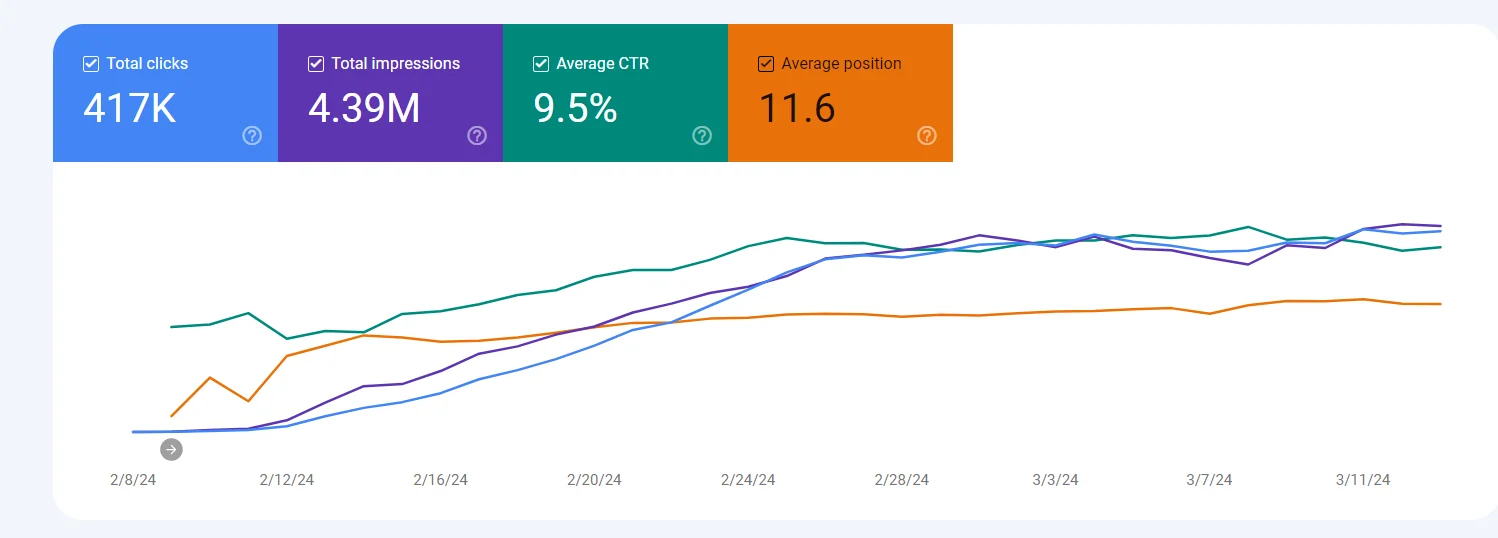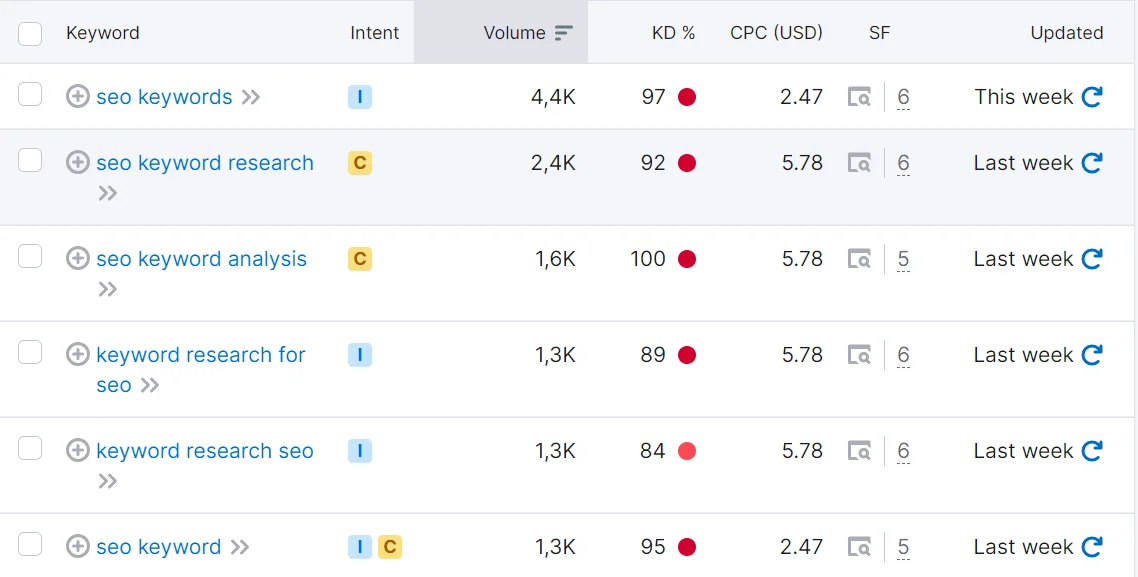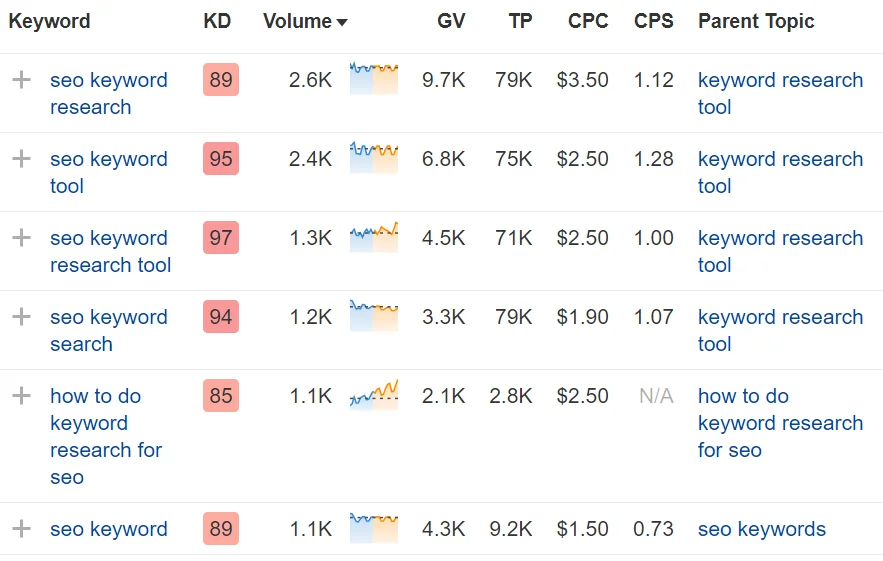Keywords are a fundamental aspect of SEO (Search Engine Optimization). They play a crucial role in improving a website’s visibility and driving organic traffic from search engines. Keyword research is the process of identifying the right keywords that are relevant to your website and target audience. In this article, we will explore the ins and outs of keyword research and provide step-by-step guidance on how to conduct effective keyword research for SEO.
What are Keywords?
Keywords are words or phrases that people use to search for information, products, or services on search engines like Google, Bing, or Yahoo. They act as a bridge between search engine users and the content they are seeking. When optimizing a website for SEO, it’s important to understand the keywords that your target audience is using to find the information or solutions your website offers.
Role of Keywords in SEO
Keywords are a crucial element in Search Engine Optimization. They are the foundation on which your content and optimization efforts are built. By strategically incorporating relevant keywords into your website’s content, meta tags, headings, and URLs, you increase the chances of your website appearing in search engine results for relevant queries.
Keywords also play a vital role in determining the competitiveness and ranking potential of your website. When search engines crawl your website, they analyze the keywords you have optimized for to determine the relevance and quality of your content. This information helps search engines rank your website in search results based on the user’s query and other ranking factors.
Knowing how SEO works is essential to understanding the algorithms that search engines use to evaluate and rank websites. These algorithms take into account various factors such as keyword usage, site authority, user experience and backlinks. By optimizing your website according to these factors, SEO aims to improve the visibility of your website, increase organic traffic and ultimately increase conversions and revenue.
Types of Keywords
There are three primary types of keywords: primary keywords, secondary keywords, and long-tail keywords.
- Primary Keywords: These are the main keywords that define the core focus of your website or business. They represent the most important topics and themes that your website covers.
- Secondary Keywords: Secondary keywords are related to your primary keywords and help to provide additional context and specificity. They are used to support and complement your primary keywords.
- Long-Tail Keywords: Long-tail keywords are longer, more specific phrases that are highly targeted to a particular topic or user intent. They typically have lower search volumes but are often easier to rank for and are highly valuable in targeting niche audiences.
Benefits of Effective Keyword Research
Performing effective keyword research offers a variety of benefits for your Search Engine Optimization efforts:
- Increased Organic Traffic: By optimizing your website for relevant keywords, you improve the chances of your website appearing in search results for those keywords. This leads to an increase in organic traffic as users discover and click on your website links.
- Better User Experience: Keyword research helps you understand your target audience’s needs and interests. By creating content that aligns with their search queries, you provide a better user experience, delivering relevant information and solutions.
- Competitive Advantage: By identifying low-competition keywords, you can target areas where your competitors may be lacking. This gives you a competitive advantage by capturing traffic and potential customers that they may have overlooked.
Now that we understand the basics of keywords and their importance in SEO, let’s explore the step-by-step process of conducting keyword research.
Keywords SEO Metrics
In the world of Search Engine Optimization (SEO), keywords play a crucial role in improving a website’s visibility on search engine result pages (SERPs). To measure the effectiveness of keywords and optimize SEO strategies, various metrics come into play. These metrics provide valuable insights and data points to help SEO professionals and digital marketers make informed decisions. Let’s explore some of the commonly used keyword SEO metrics and the tools that offer them:
Google Keyword Planner
Google Keyword Planner is a popular tool offered by Google Ads. It helps users identify relevant keywords and uncover insights into search volume trends, competition level, and estimated bids for specific keywords. With Google Keyword Planner, users can conduct in-depth keyword research and discover new keyword opportunities to improve their website’s visibility in SERPs.
Google Search Console
Google Search Console, formerly known as Google Webmaster Tools, is a valuable resource for webmasters and SEO professionals. It provides essential keyword SEO metrics like keyword rankings, click-through rates, impressions, and average position on Google’s search engine. By analyzing these metrics, users can gain insights into their website’s organic search traffic performance and identify areas for improvement.

SEMrush
SEMrush is a comprehensive SEO tool that offers a wide range of features for keyword research, competitor analysis, and site auditing. Regarding keyword SEO metrics, SEMrush provides insights into keyword difficulty, search volume, and CPC (Cost Per Click). Users can track keyword rankings, identify high-potential keywords, and analyze their competitors’ keywords and rankings. With SEMrush, users can enhance their keyword strategy and optimize their website for better search engine visibility.

Ahrefs
Ahrefs is a renowned SEO tool primarily known for its backlink analysis capabilities. However, it also provides valuable keyword SEO metrics. Ahrefs allows users to research keywords, track their rankings, and analyze their website’s visibility for specific keywords. Additionally, it provides insights into keyword difficulty, search volume, traffic potential, and click-through rates (CTRs). By utilizing these metrics, users can refine their keyword strategy and improve their website’s ranking on SERPs.

Moz Keyword Explorer
Moz Keyword Explorer is another reliable tool for conducting keyword research and analyzing their SEO metrics. It offers data on keyword difficulty, organic click-through rates, and search volume. Moz Keyword Explorer also provides a detailed analysis of the top-ranking pages for a given keyword, helping users understand the competition and identify content gaps. With Moz Keyword Explorer, SEO professionals can make informed decisions on keyword targeting and content optimization.
Ubersuggest
Ubersuggest, developed by Neil Patel, is a user-friendly keyword research tool that offers valuable insights into SEO metrics. Users can discover new keyword ideas, analyze search volume, and understand keyword difficulty. Ubersuggest provides data on search trends, related keywords, and estimated traffic potential. With Ubersuggest, users can refine their keyword strategy and optimize their content for better visibility in SERPs.
KeywordTool.io
KeywordTool.io is a versatile keyword research tool that offers insights into keyword SEO metrics for various search engines, including Google, Bing, and YouTube. It provides data on search volume, related keywords, and keyword difficulty. KeywordTool.io also offers long-tail keyword suggestions and helps users understand the search intent behind specific keywords. By utilizing KeywordTool.io, SEO professionals can uncover niche keywords and drive targeted traffic to their website.
Long Tail Pro
Long Tail Pro is a specialized keyword research tool designed to help users find long-tail keywords with lower competition. It provides keyword metrics such as search volume, keyword difficulty, and search trends. Long Tail Pro also offers insights into competitor analysis and helps users identify keyword opportunities that can drive targeted traffic to their website. With Long Tail Pro, users can streamline their keyword research process and optimize their SEO strategy.
SpyFu
SpyFu is a competitive intelligence tool that allows users to analyze their competitors’ keywords, ad campaigns, and SEO strategies. In terms of keyword SEO metrics, SpyFu provides insights into search volume, CPC, traffic potential, and keyword difficulty. It helps users discover profitable keywords, track their rankings, and gain a competitive edge in their SEO efforts. By using SpyFu, users can identify gaps in their keyword strategy and make data-driven decisions to improve their SEO performance.
SERPstat
SERPstat is an all-in-one SEO platform that offers features for keyword research, rank tracking, and site analysis. Regarding keyword SEO metrics, SERPstat provides data on search volume, keyword difficulty, and traffic potential. It also offers insights into competitors’ rankings and helps users identify the most lucrative keywords in their niche. SERPstat allows SEO professionals to optimize their keyword strategy and monitor their website’s performance on SERPs.
Keywords Everywhere
Keywords Everywhere is a browser extension that offers real-time keyword SEO metrics directly on search engine result pages. It provides data on search volume, CPC, and competition level for specific keywords. Keywords Everywhere seamlessly integrates with search engines like Google, Bing, and YouTube, as well as various keyword research tools. By utilizing Keywords Everywhere, users can save time, streamline their keyword research process, and make data-driven decisions based on the latest metrics.
Keyword Research Process
Keyword research involves several steps to ensure comprehensive and effective analysis. Here’s a breakdown of the keyword research process:
Step 1: Setting Objectives for Keyword Research
Before diving into keyword research, it’s important to define clear objectives. Identify what you want to achieve with your SEO efforts and how keyword research fits into your overall strategy. Understanding your goals will help you prioritize and focus on the keywords that matter most for your website.
Step 2: Defining Target Audience and User Intent
To select the right keywords, you need to understand your target audience and their intent when searching for information. Consider the demographics, interests, and pain points of your target audience. By diving into their mindset, you can identify the types of queries they are likely to use and the keywords they might search for.
User intent analysis is critical in this step. Determine whether users are looking for information (informational intent), seeking a specific product or service (transactional intent), or looking for a particular website (navigational intent). This analysis will help you refine your keyword selection to match the search intent of your target audience.
Step 3: Generating Keyword Ideas
Generating a comprehensive list of keyword ideas is crucial for successful keyword research. Here are some techniques for brainstorming keyword ideas:
- Content Gap Analysis: Analyze your competitors’ websites to identify gaps in their content that you can fill. Look for keywords they are not targeting or topics they haven’t covered adequately.
- Google Autocomplete: Use Google’s autocomplete feature to discover popular keyword suggestions as you type in the search bar. These suggestions are based on real search queries and can provide valuable insights into what users are searching for.
- Online Forums and Communities: Join relevant online forums and communities where your target audience engages. Pay attention to the questions, concerns, and discussions related to your niche. These can serve as a rich source of keyword ideas.
- Social Media Listening: Monitor social media platforms to understand the conversations and trending topics within your industry. Pay attention to the keywords and topics users are discussing, as these can inform your keyword research.
By utilizing these techniques, you can generate a wide range of keyword ideas that align with your target audience’s interests and needs.
Step 4: Utilizing Keyword Research Tools
Keyword research is a fundamental part of any successful SEO strategy. There are several popular keyword research tools available that can help streamline this process and provide valuable insights. Here are ten popular keyword research tools, along with their brief descriptions and benefits:
- Google Keyword Planner: This free tool by Google offers keyword ideas, search volume data, and competition analysis, making it an excellent starting point for keyword research.
- SEMrush: SEMrush is a comprehensive SEO suite that includes powerful keyword research capabilities, allowing users to discover profitable keywords, analyze competitors, and track keyword rankings.
- Ahrefs: Ahrefs is an all-in-one SEO tool that provides detailed keyword analysis, backlink data, and competitor research. It offers a vast keyword database and helps uncover new keyword opportunities.
- Moz Keyword Explorer: Moz Keyword Explorer helps users identify relevant keywords, analyze their difficulty, and provides valuable insights to optimize your content strategy for specific keywords.
- Ubersuggest: Ubersuggest is a freemium tool that provides keyword suggestions, search volume data, and SEO difficulty metrics in an easy-to-use interface. It also provides content ideas and competitor analysis.
- KeywordTool.io: With KeywordTool.io, users can generate keyword ideas from various sources, including Google, Bing, YouTube, and more. It helps uncover long-tail keywords and provides search volume and CPC data.
- Long Tail Pro: Long Tail Pro focuses on finding long-tail keywords that have less competition. It offers features like competitor analysis, rank tracking, and keyword difficulty analysis.
- SpyFu: SpyFu allows users to spy on competitors, uncover their profitable keywords, and gain insights into their PPC campaigns. It provides valuable data for both SEO and PPC strategies.
- SERPstat: SERPstat offers a wide range of SEO features, including keyword research, competitor analysis, rank tracking, and backlink analysis. It provides in-depth insights into keyword difficulty and search trends.
- Keywords Everywhere: Keywords Everywhere is a browser extension that provides valuable keyword insights while you perform searches on Google, YouTube, Amazon, and other platforms.
These keyword research tools offer a variety of features and data, helping you identify the most relevant and high-performing keywords for your SEO efforts, track your rankings, and gain a competitive edge in the online landscape.
Step 5: Analyzing and Selecting Keywords
Once you have generated a list of potential keywords, it’s time to analyze and select the most effective ones. Here are some factors to consider:
- Relevance: Ensure that the selected keywords align with your website’s content and are relevant to your target audience. Choose keywords that accurately represent the topics and themes covered on your website.
- Search Volume: Evaluate the search volume of keywords to determine the potential audience size. While high search volume is desirable, don’t overlook keywords with lower search volumes, as they can cater to specific and highly engaged audiences.
- Competition: Analyze the level of competition for each keyword. Identify if authoritative and well-established websites dominate the search results. Gauge your website’s ability to compete and rank for these keywords.
- Keyword Difficulty: Take into account the difficulty score provided by keyword research tools. Select keywords with manageable difficulty scores that align with your website’s authority and resources.
- Search Trends: Keep an eye on search trends to identify emerging topics and capitalize on new opportunities. Understand how the search volume for specific keywords fluctuates over time to optimize your strategy.
By carefully considering these factors, you can select the most relevant and valuable keywords to optimize your website and drive organic traffic.
Step 6: Refining and Expanding Keyword List
Keyword research is an ongoing process, and your keyword list should be continuously refined and expanded. Here are some strategies to consider:
- Identifying Long-Tail Keyword Opportunities: Long-tail keywords provide a targeted approach to address specific user queries. Exploit the value of long-tail keywords by identifying opportunities to incorporate them into your content. These keywords often have less competition, offering higher chances of ranking.
- Using Keyword Variations and Synonyms: Expand your keyword list by incorporating variations and synonyms of your primary keywords. This enhances the relevancy of your content and increases the potential for discovery by users searching with different terms.
- Incorporating SEO-Friendly Phrases and Questions: Take advantage of users’ search behavior by incorporating SEO-friendly phrases and questions into your content. This helps capture users who prefer using longer search queries or asking questions in search engines.
Continually refine and expand your keyword list to stay ahead of changing search trends, address evolving user needs, and remain competitive in search engine rankings.
Conclusion
Keyword research is a crucial step in optimizing your website for search engines. By understanding the role of keywords in SEO, following a systematic keyword research process, conducting audience research, brainstorming keyword ideas, utilizing keyword research tools, and analyzing and selecting the most effective keywords, you can enhance your website’s visibility and drive organic traffic. Remember to continuously refine and expand your keyword list to adapt to changes in search trends and user behavior. With a well-executed keyword research strategy, you can improve your website’s ranking and attract the right audience to your content.
FAQ
Why is keyword research important for SEO?
How can I find the right keywords for my website?
How do I know if a keyword is worth using?
Are long-tail keywords more effective than short-tail keywords?
How often should I update my keyword strategy?

 Amazon Marketing
Amazon Marketing


